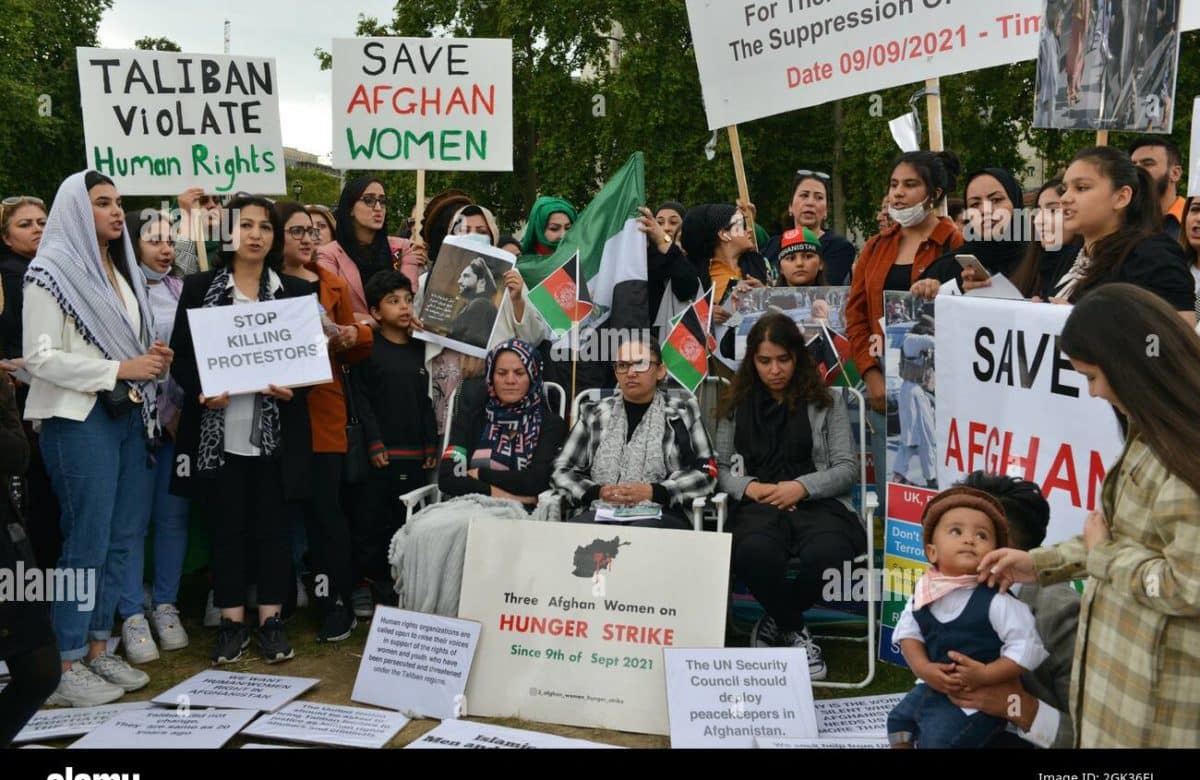
Germany wants to cut benefits for refugees
آلمان می خواهد مزایای پناهندگان را کاهش دهد
آلمان در حال بررسی مجدد سیاست خود در قبال پناهندگان است. با توجه به اینکه بسیاری از شهرها تحت تأثیر تعداد مهاجران قرار گرفته اند، اکنون دولت تغییراتی را اعلام کرده است.
صدراعظم اولاف شولتز پس از توافق دولت فدرال و نخست وزیران 16 ایالت بر روی مجموعه ای از اقدامات برای اصلاح سیاست پناهندگان آلمان، از “لحظه ای تاریخی” صحبت کرد.
به اساس فیصله نامه جدید، حق دسترسی پناهجویان به مزایا و خدمات منظم اجتماعی، که تا کنون پس از ۱۸ ماه تعیین شده بود، در آینده پس از سه سال امکان پذیر خواهد بود. تا آن زمان مبلغ کاهش یافته ۴۱۰ یورو برای مخارج ماهانه یک پناهجو، مورد اعتبار باقی می ماند. خدماتی مانند غذا، باید در اقامتگاه های دولتی درنظر گرفته شوند.
به قول کریستیان لیندنر، وزیر مالیه آلمان فدرال، این امر می تواند به صرفه جویی یک میلیارد یورویی منجر شود. او افزوده است: «این اقدام نه تنها از بار ایالت ها و شهرداری ها می کاهد، بلکه با آن از جذابیت کشور مرفه آلمان نیز کاسته خواهد شد.»
نخست وزیران ایالت ها و صدراعظم فدرال همچنان فیصله کردند که امکانات برای پناهجویان در زمینه کارهای عام المنفعه نیز باید آسان تر شود.
در فیصله نامه آمده است که در آینده هر کسی که به عنوان پناهنده به آلمان بیاید، اولتر از همه از خدمات غیر نقدی برخوردار خواهد بود.
همچنان قرار است تا آغاز سال ۲۰۲۴ میلادی، یک نوع کارت پرداخت تهیه شود که پناهجویان بتوانند از آن، به جای پول نقد، برای خرید اشیای روزمره استفاده کنند. این امر برای پناهجویان امکانات ارسال پول به کشور های شان را محدود می سازد.
Germany is reexamining its refugee policy. With many cities overwhelmed by the number of migrants coming in, the government has now announced changes.
Chancellor Olaf Scholz spoke of a “historic moment” after his federal government and the premiers of the 16 states agreed on a series of measures to amend Germany’s refugee policy.
Benefits for refugees are more generous in Germany than in many other EU countries. Conservative politicians have described this as a “pull factor” attracting refugees to Germany, and have suggested paying out less or no more cash to new arrivals.
Currently, it takes an average of six to 18 months for an asylum application to be processed. Until now, applicants would receive higher benefits after they had been in the country for 18 months. That threshold will now be extended to 36 months. Until then, the reduced rate of €410 (about $440) per month will apply. Benefits such as food in state accommodation are offset.
After the announcement of the changes, Finance Minister Christian Lindner (FDP) wrote on X, formerly Twitter, that this could lead to savings of €1 billion. This would “not only relieve the burden on states and municipalities,” he wrote, it would also “reduce the appeal of the German welfare state.”
Payment cards instead of cash
Currently, adults living in initial reception facilities receive food at their accommodation, and an additional maximum of €150 (about $160) per month in pocket money for personal needs such as phone cards, toiletries or travel tickets. This “pocket money” is enshrined in law, and the constitutional court has ruled that it cannot be arbitrarily reduced.
A special working group will now map out ways to switch to payment cards instead of cash payments from early 2024.
Such debit cards are being used in other countries, such as France. Instead of being given cash, refugees would receive a card, to which social authorities would regularly transfer the allowances which can be used to pay for purchases in supermarkets. However, it’s not possible to withdraw cash from the card.
It has long been legally possible to provide refugees primarily with benefits in kind, but the states and local authorities prefer not to because it requires more resources and turns out to be much more expensive than simply paying out cash.
“The principle of benefits in kind was already tried in the 1990s, and then again in 2015 and it turned out not to be practical,” said Niklas Hader of the German Center for Integration and Migration Research in Berlin.
It will now also be made easier for asylum-seekers to take up charitable work while they are waiting for their applications to be approved.
Border controls to remain
The stationary controls introduced in October at the borders with Poland, the Czech Republic and Switzerland will be maintained “for a long time,” according to Chancellor Scholz.
Refugees who want to enter Germany from other EU countries should be sent back to those countries directly, if possible. It is therefore planned to carry out checks before refugees reach the German border. This is already the case in Poland.
Asylum procedures set to speed up
Asylum procedures are to be accelerated; the aim is to limit the duration to six months, including appeals in court. The EU-led countries in particular would like asylum procedures to take place outside of Europe, for example in Africa.
This option is to be examined, but there are considerable legal concerns and doubts about its feasibility. Bavaria’s state premier, Markus Söder, of the center-right CSU, said after the meeting between the federal and state governments that he felt things were moving in the right direction, but it was still not enough.
“We have to keep up the pressure to limit immigration to Germany,” he said.
More federal funds
To date, the states have had to renegotiate with the federal government every year about who pays what costs for the care of refugees. Now, there is to be a lump sum of €7,500 per refugee per year.
So far in 2023, some 220,000 migrants have made an initial application for asylum. And of the 1 million Ukrainian refugees from the war, more and more are now registering with the authorities to be housed by the state.
Cities and municipalities have long been asking for support with accommodation, ranging from a simplification of legal procedures to an increase in social housing programs.
‘Not much to be gained’ from tougher deportation rules
At the moment, there are around 250,000 people in Germany who have had their asylum applications rejected. Some people simply cannot be tracked down by authorities. But 200,000 of them can’t be repatriated as there is either no country willing to take them in, or their country of origin is a war zone or they themselves have serious health issues that cannot be treated in their countries of origin.
In late October, the government drafted a bill to increase the number of deportations. However, the high number of refugees in most cities and municipalities currently consists of new arrivals.
Across Germany, mayors and district councils are saying they no longer know where to accommodate the refugees who are allocated to them according to a fixed distribution formula.
In October, 600 of Germany’s 11,000 municipalities took part in a survey conducted by Mediendienst Integration together with migration researchers from the University of Hildesheim. Almost 60% of them described the situation as “challenging, but [still] feasible.” But 40% percent report being “overloaded” or even said they were “in emergency mode.”
The lack of accommodation is just one factor. There’s also a shortage of administrative staff, and not enough spots in nurseries and schools, language courses and counseling services for traumatized refugees.
Main Resource Link
- Tags
- Europe



